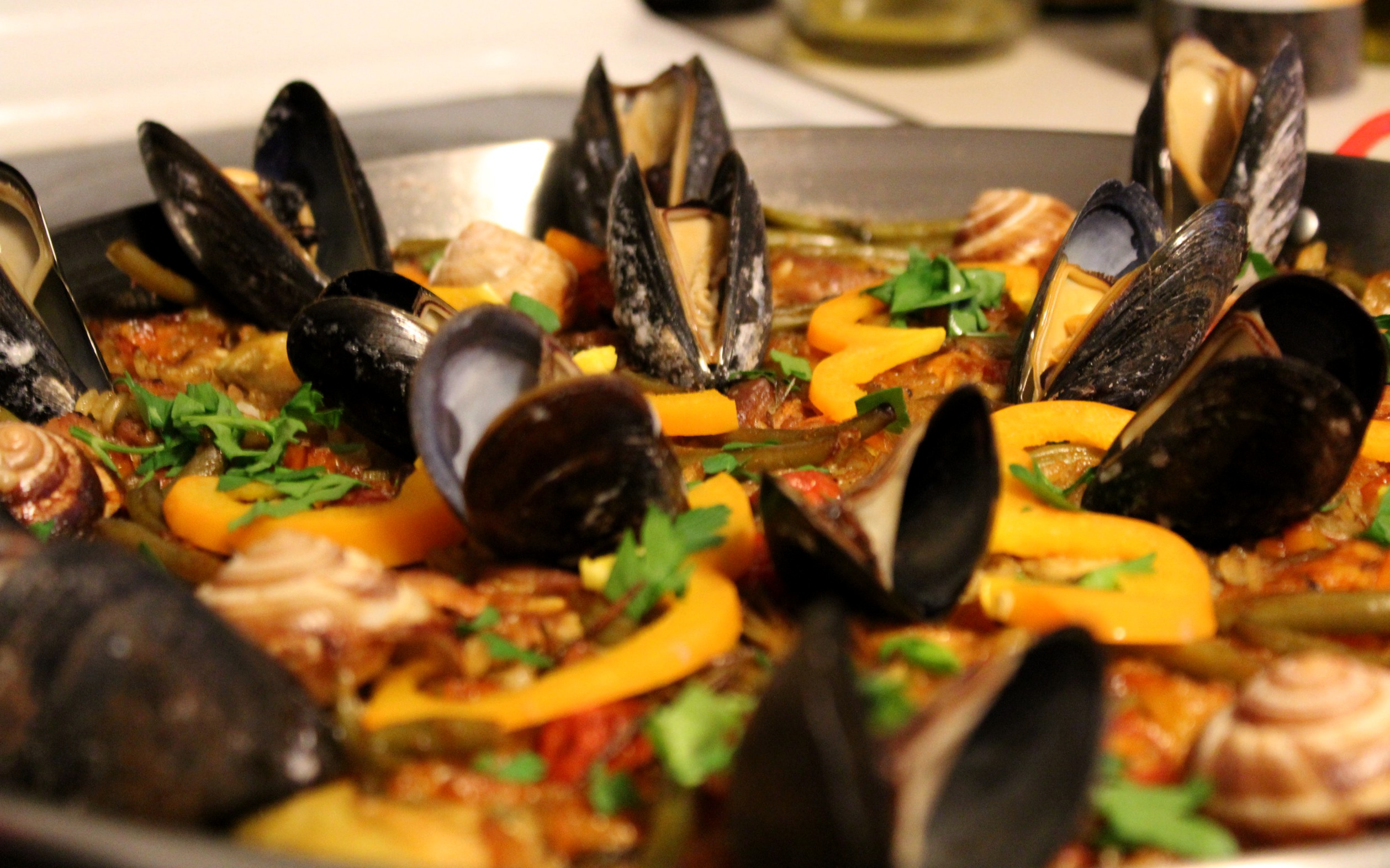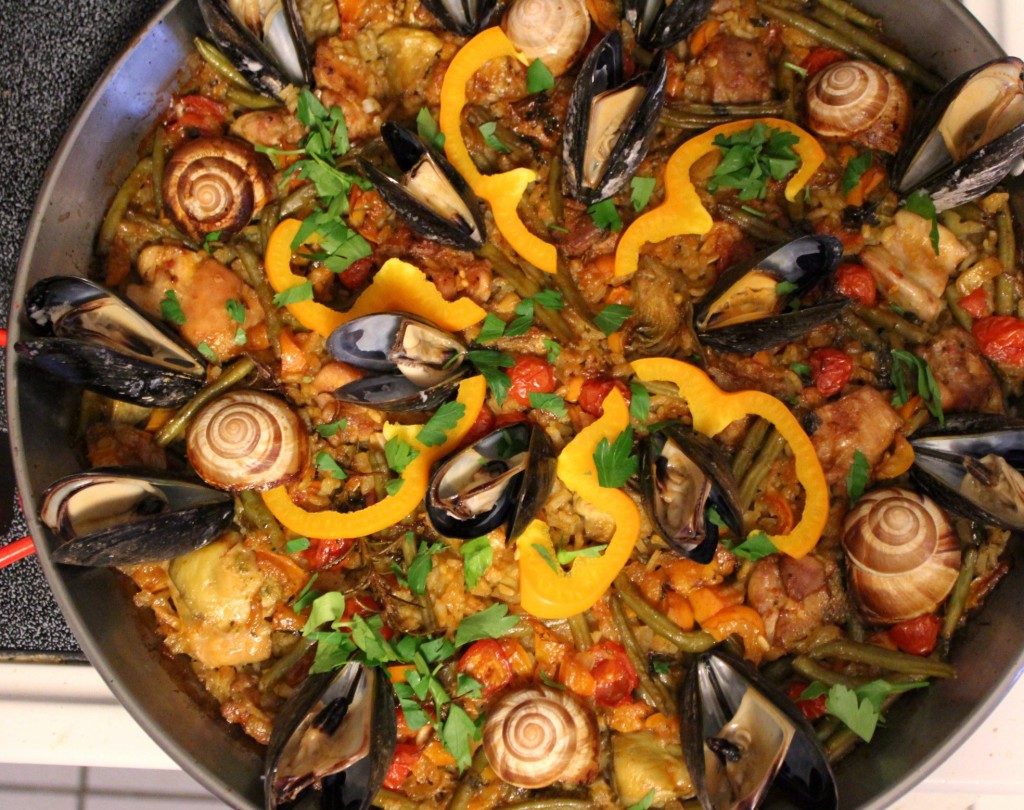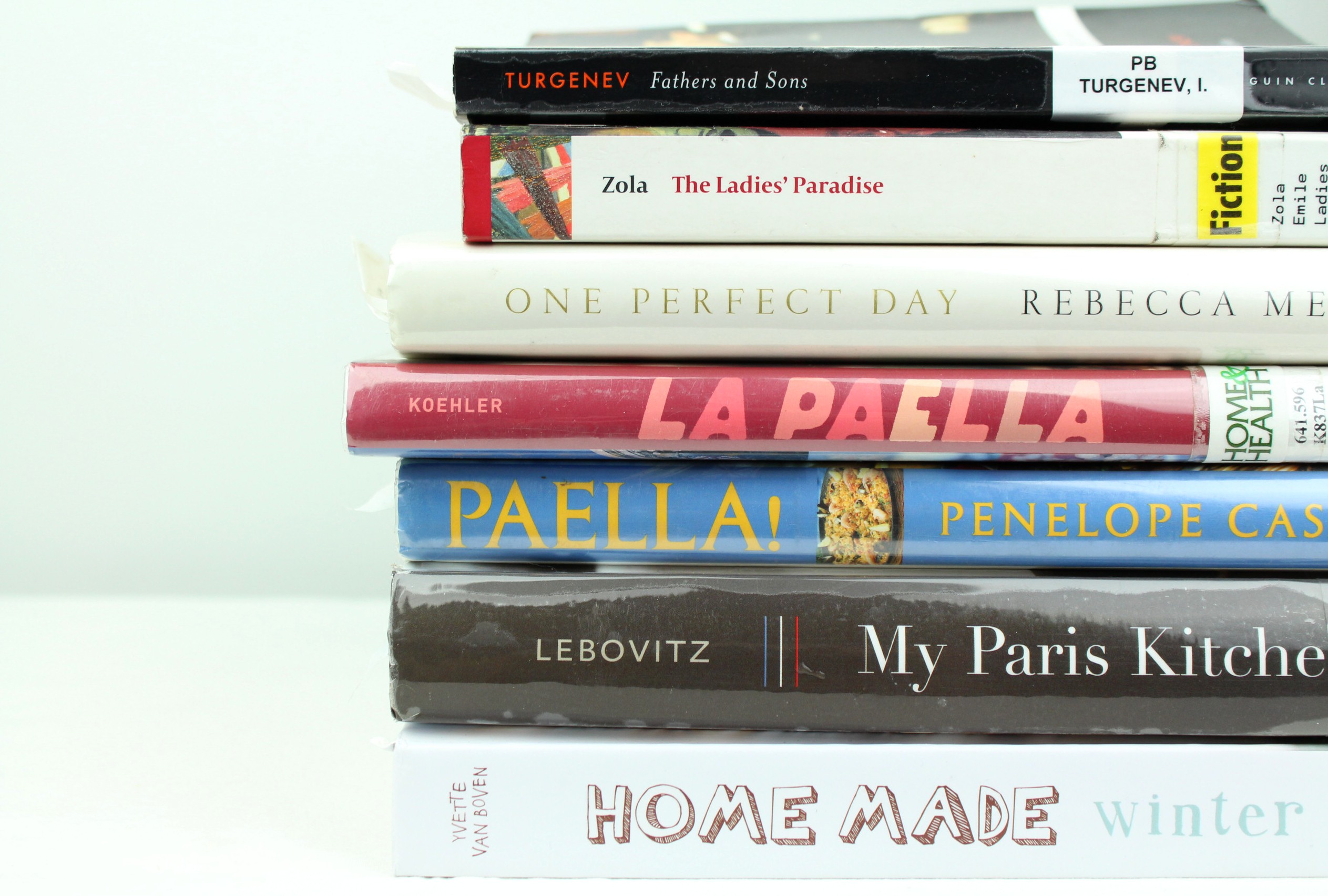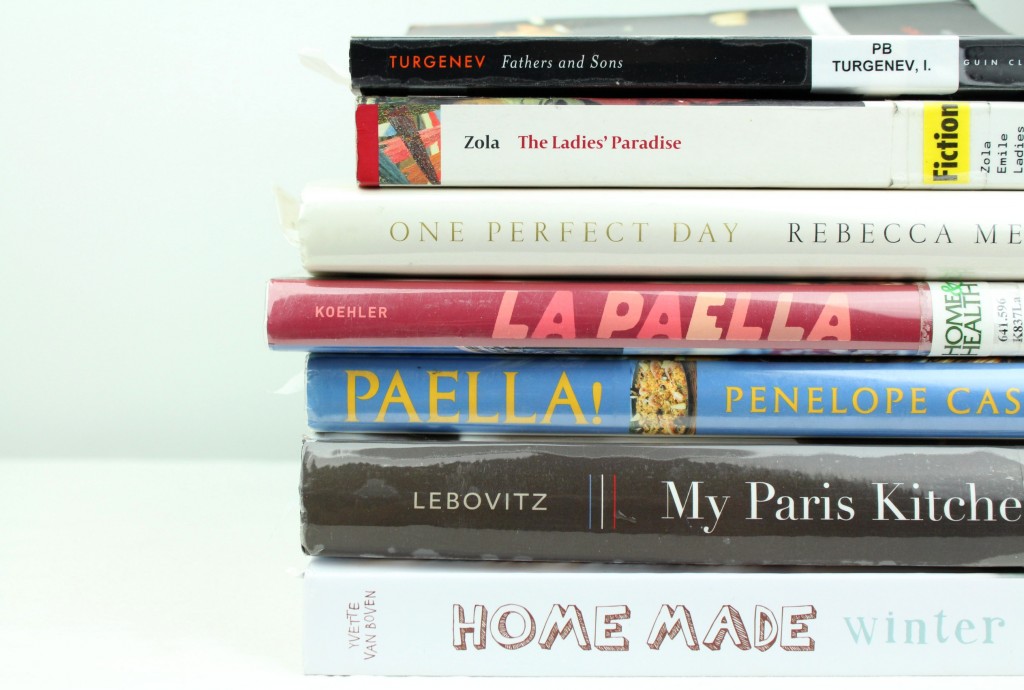So, after reading about 100 paella recipes, I determined that one need only get the ratio of rice to broth correct, and use a good quality broth, and an appropriate grain of rice, and beyond this anything goes. A creature of endless flexibility, is paella.
I opted for a mix of poultry and seafood, a paella mixta, and baked it to finish, a somewhat friendlier way to get an evenly cooked end result when cooking inside, particularly on an electric range. [I am determined to have, in some future existence, a gas range (and a bathtub).]
Here we have chicken, artichokes, snails, mussels, green beans, a highly influential sprig of rosemary (one recipe suggested adding either snails or rosemary, which I found intriguing, that they would be substitutes of some kind) and a base of garlic/onions/tomatoes/bell peppers/pimentòn. This is arborio rice, a pretty common substitute for the traditional Spanish bomba rice, which is not hard to find online now but kind of expensive. I overcooked it slightly. Was pleased overall, and inspired to experiment with other rices. Bomba. Valencia. Calasparra. Good names.
Hm. So. I don’t really like snails. Or, I really don’t like snails. I reserve the hope of being converted one day by some superb specimen but until then: no, no, escargot. I had some frozen ones (when you get whimsical at Whole Foods these things happen) and gamely stuck them in (they are pretty), and don’t mind whatever flavor they impart, but the texture is deeply unappealing to me. I spat it out, actually, the one I tried. I couldn’t bear to chew it.
I realize I do quite like mussels, though, which I didn’t know. I didn’t even expect to like them. I had an early aversion to shellfish that gradually softened into a long standing skepticism, and only in the last few years am I open to reconsidering certain things, coming around bit by bit, with many qualifications.
Paella is so festive, inherently festive, even in the absence of any other markers of festivity (guests, say…an event, say). What is decided is, paella is meant to be shared (much of the lore and tradition surrounding paella, and there is a lot, is tied up in its social nature), and next time I should include some kind of sausage, and more pimentòn.





